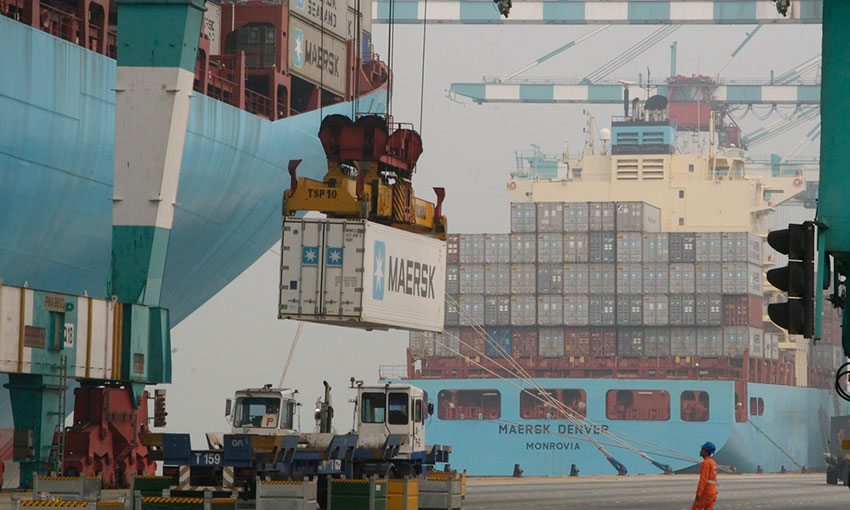THE global supply-chain challenges of 2021 are continuing into the new year, according to a customer advisory from Maersk.
“Unfortunately, 2022 has not started off as we had hoped. The pandemic is still going strong and unfortunately, we are seeing new outbreaks impacting our ability to move your cargo,” Maersk said.
“General sickness remains high as key ports in key regions are seeing new COVID-19 peaks.”
However, the company said there were some bright spots, pointing to the ongoing COVID-19 outbreak in the Chinese city of Beilun. The outbreak has yet to spread to the three Ningbo container terminals near the epidemic area.
“Vessel calls and departures are so far running as normal, as well as loading and discharge activities. After some days with revised operations, container gate-in and gate-out activities are now also back to normal with a combined yard density of around 75%,” Maersk said.
“However, trucking services in Jinhua Yongkang, the mid-high-risk area of Beilun and the area outside the Zhejiang province are suspended under the strict regulation by the epidemic prevention policy.”
Closer to home, however, Maersk is making changes in some of its routes to mitigate delays caused by port congestion.
On Monday, the company announced a 17-day gap in the Brisbane call for its Dragon service, from 8 January through 25 January.
“Due to the heavy port congestion at Melbourne, we had to do a port swap Melbourne/Brisbane call for Maersk Semakau (215/151N) on earlier Dragon Service,” the company said.
“We are unable to instate any other port swaps for this service, therefore the 17-day gap between vessels on this service at Brisbane.”
And last week, the company announced a port swap for its vessel GSL Christel Elisabeth, it will call Melbourne first, on 13 January, before heading to Sydney with an ETA of 17 January.
Maersk said the swap was due to delays in berthing at Sydney.

